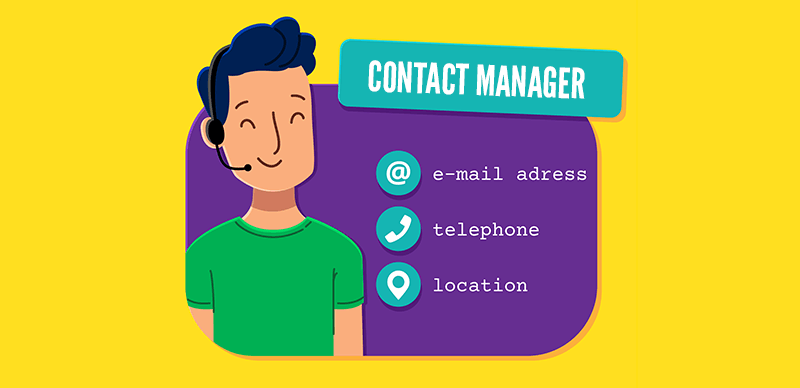
Ask any sales person about their greatest asset- You will hear contacts. Contacts are nothing but relationships and talking about sales, people buy relationships whether it is from a brand, a person or with the values of the company. This makes contacts the seed of a sales tree and managing contacts are like planting your seeds the right way.
That’s a farmer, right? There is an age-old debate between hunters and farmers. Which kind of salesman is more profitable? There is no definite answer to this question but whichever type – they need something to manage their contacts
So, what is a Contact Manager?
Like every other tool, contact manager was built to make your life easier. In the world of sales, contact manager is probably the most important one, because as we already know- everything starts with a contact.
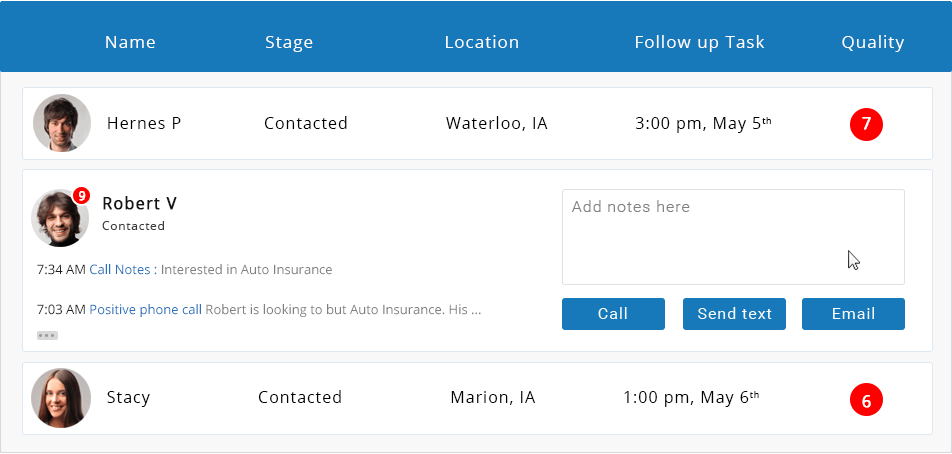
In simplest terms, a contact manager will help you manage your contacts better. When I was a kid, I have seen my father scribbling diaries with phone numbers and notes. That was the contact manager for him.
Time has changed and now the diaries have transformed into mobile phones and tablets. But he wasn’t a salesman. He had limited contacts. For the salesman though, the competition has turned to tool into a real thriving technology- Welcome to the world of contact manager, lead manager or a CRM. Whatever you may call it. They are close cousins but with a different nature. But before that
Is Contact Management Really Necessary?
When you sell for a living, you probably have hundreds, if not thousands of contacts. It becomes difficult to keep track of each and every contact. You need a system which helps you manage those contacts. Forget managing, contact managers have come a long way and they just not manage your contacts but help you close the deal faster. Something which makes sure that you are doing the right things, you are not forgetting anything important and you are aware of what is happening with your contacts.
Let’s see some of the most important aspects of a contact manager
1) Keeps everything at one place
First things first, it keeps everything at one place. You don’t have to maintain dozens of excel sheets. You don’t have contacts scattered all around the back of your notebook, mobile phone or emails

But it’s a pain to import all the contacts manually
Yes, it is is a pain, but you don’t have to do it. Modern contact managers are capable of importing the data automatically via integrations. Most of the software product companies have realized that they can not be like an island anymore. They either provide out of the box (readymade) integrations or they provide API’s to connect to the other system.
What is an API?
An API is an Application programming interface. In simplest terms, it is an interface which allows to software to talk to another software and send receive data easily – In this case, the contacts.
For example – If someone emails you and shows some interest. That person/lead/contact automatically becomes a record in your system. You don’t have to fill in all the details again in your contact manager and copy-paste the email content manually.
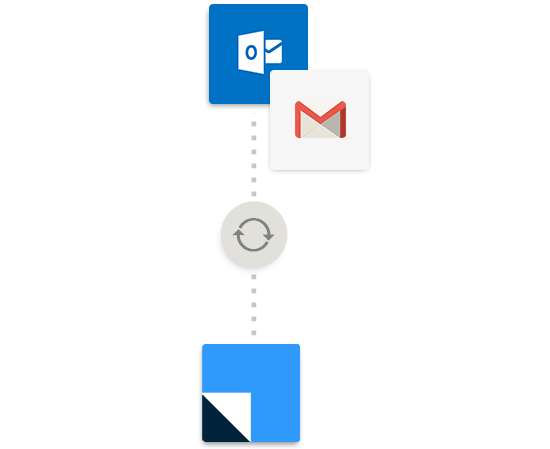
That is because the email client and your contact management software are connected via an API. Such is the case with chat software, telephony software, social media platforms, PPC platforms, third party website and more.
2) Differentiates between good leads and the bad leads
Now you have all your contacts in one place. What next? Start looking for opportunities? Where do you start? A sophisticated contact manager helps you with prioritizing your tasks. It tells you the leads which are active and have higher chances of closure against the not so serious ones.
There are two ways to do that – quality scoring and lead scoring
What is a Quality Score?

It is a score which is generated by matching your ideal customer persona. You need to set the parameters of that ideal customer and the software matches it with a new contact. For example
Give 10 points if the contact is C-Level
Give 5 points if the industry is finance, insurance or banking
Give 5 points if the age is between 30-45 years.
Now if you have two contacts – A CEO of XYZ bank and an intern of a small broker company. You know who to chase first. It’s easy, you can do it yourself. But imagine thousands of such contacts in the system- Not so easy.
What is a lead/contact Score?

Lead Score is different than quality score as it is based on the activities of a lead or a contact. For Example-
Add 5 points if a contact is viewing a policy page
Add 10 points if a contact spends more than 10 minutes on any page
Subtract 10 points if a contact unsubscribes on the emails.
Like this, you will have a cumulative score of each contact in your system, which indicates which contact is active and which one is dormant.
You can also integrate this information with your marketing system which can trigger communication based on the activities and scores of the contacts.
3) Reminds of important tasks
” I forgot” is not an acceptable excuse, it never was. A contact manager saves you from this embarrassment by managing your tasks and keeping you on top of them. When you start your day, it tells you a complete list of pending tasks, day’s tasks in the order of priority. You can also sync your mobile and email.

The sales manager can also keep an eye on their inside sales, call center and on field teams by monitoring their tasks like – number of calls made, number of emails sent, missed follow-ups, pending tasks and more.
4) Sets context to the sales
Nobody likes an aggressive salesman trying to shove them down the sales funnel. Following up is good, but only with the proper context. Everybody needs the solutions to their problems, but to solve them your sales team needs to make sure they start from where they left off from last time.

A salesman who does that the best stands the best chance. A contact manager is not a book of contacts. It also stores the communication history, which in turns gives the context to the salesperson about what to talk. Where did we leave last time?
5) Provides analytics
Analytics is an integral part of the contact manager. After all, numbers don’t lie. Everybody wants to see the results. A contact manager gives you powerful insights into contacts, activities, tasks, and revenue.
The funnel report gives you an overview of where your contacts are in the sales process
(LeadSqured Snapshot)
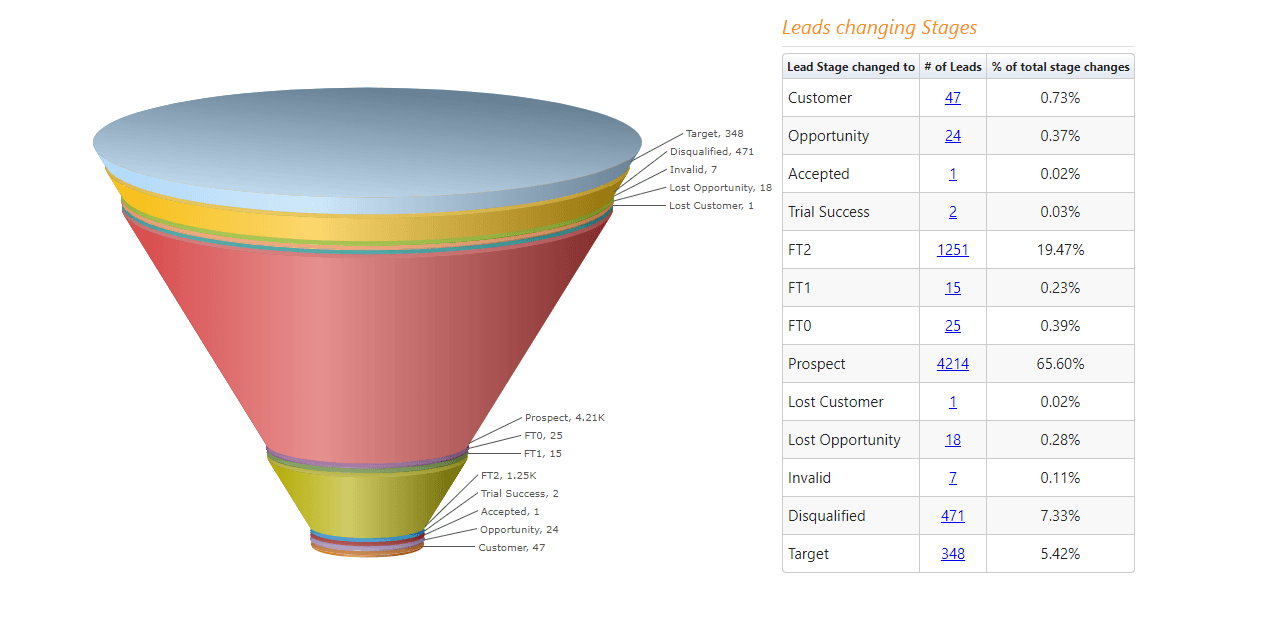
The sales pipeline report gives you an idea of how the how the much revenue is expected in the coming time period
(LeadSqured Snapshot)
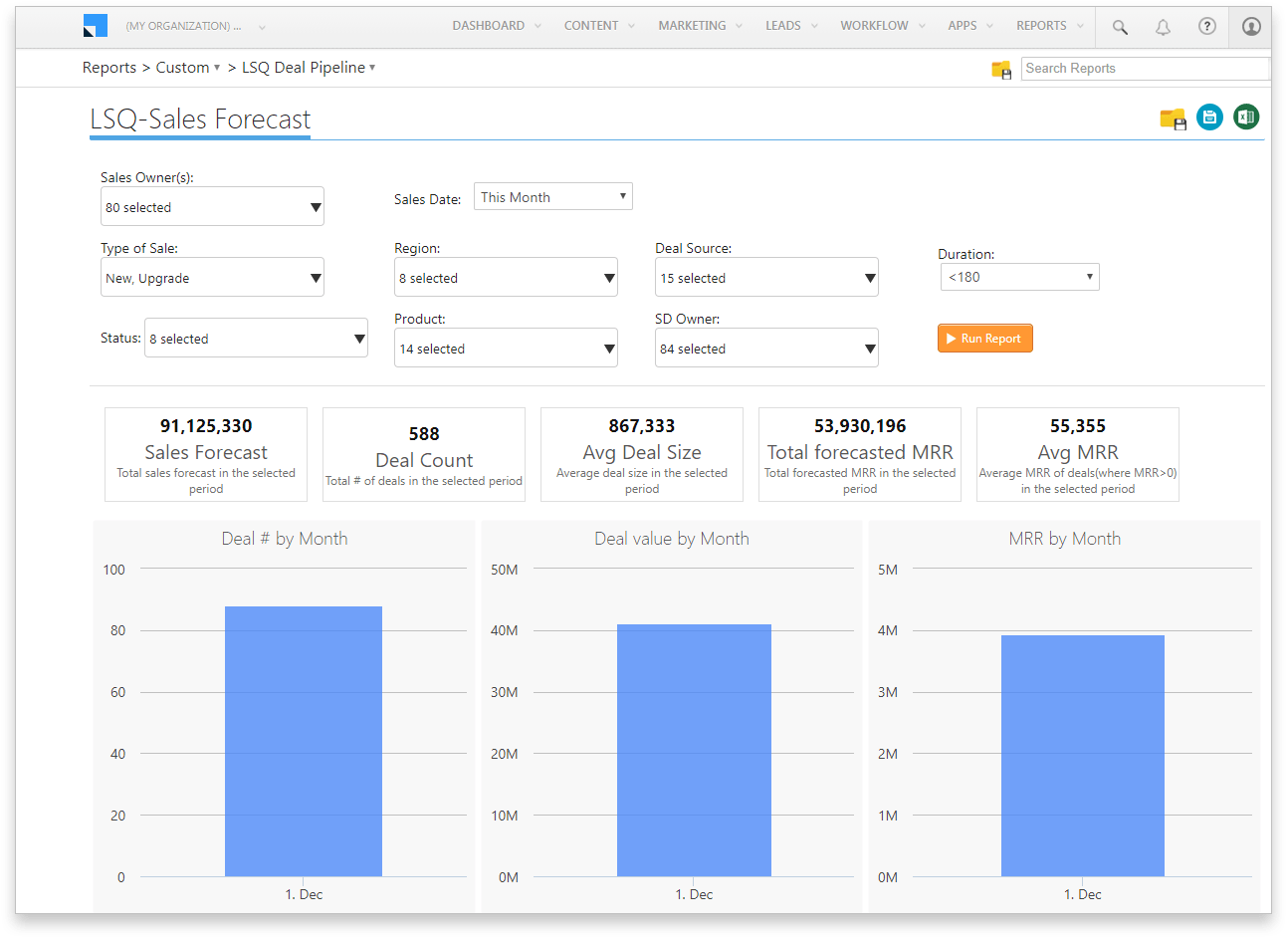
The sales performance report tells you how your sales team has performed in the given time period in terms of follow-ups, meetings, and revenue
(LeadSquared Snapshot)
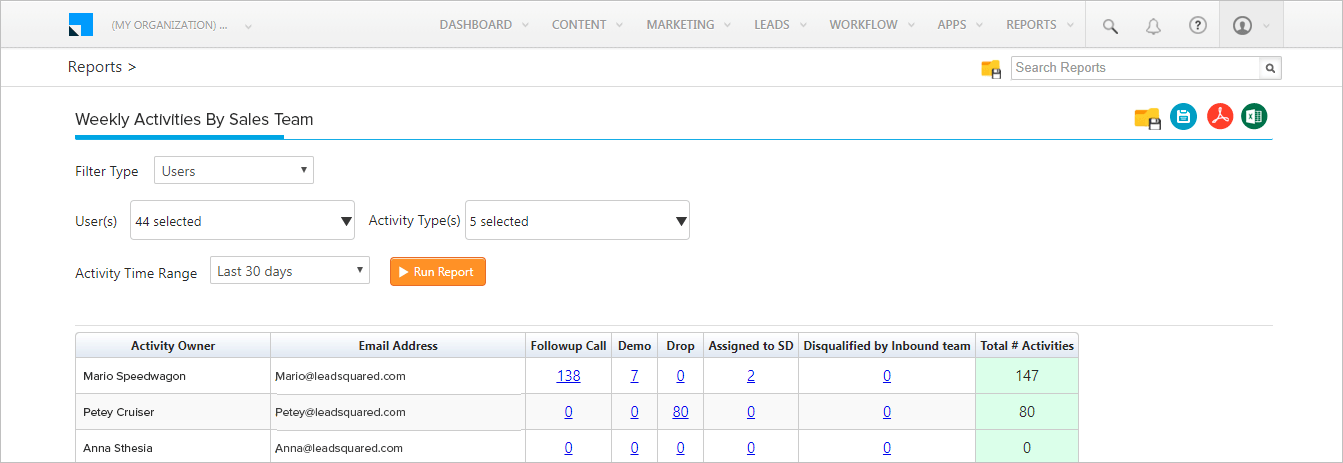
In the end
Everybody wants to uncomplicate their lives, spend time doing what they love. In all probabilities, you don’t love juggling between 20 tasks, phone numbers or emails in a day, when you can use that time better and if technology can help you do so, why not?
If you are struggling with missed follow-ups, late response time or excel overdose, you should give contact manager a try. It might be something you were looking for a long time.







